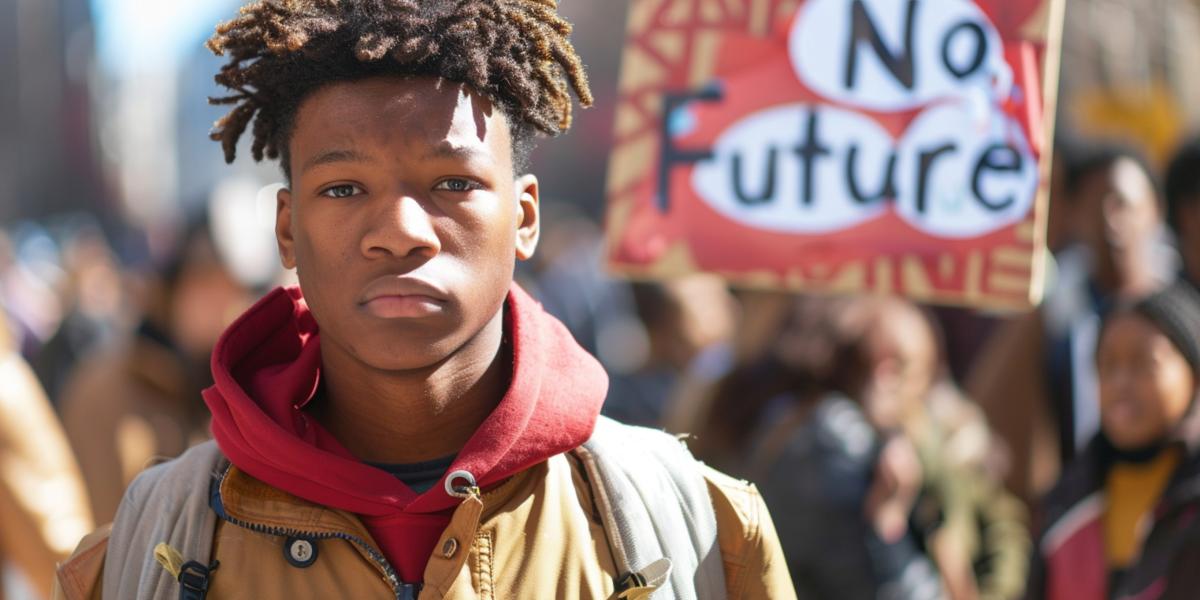Addressing “Climate Anxiety”: Vermont State Agency Provides Support for Helping Professions
Climate anxiety, commonly referred to as eco-anxiety, eco-grief, or climate doom, is gaining increasing attention in psychological and psychiatric literature, with organizations such as the Yale Program on Climate Change Communication leading much of the research. Mental health professionals, including trauma researchers, are witnessing a rise in patients exhibiting symptoms associated with this phenomenon; however, they often struggle with how to effectively manage these cases. While climate anxiety itself is not a recognized medical diagnosis, it describes a collection of symptoms triggered by long-term shifts in climate and weather patterns, which may be aggravated by underlying anxiety disorders. The demographic most affected tends to be younger generations, particularly those between ages 16-34, comprising Generation Z and Millennials. There’s growing concern about the potential for climate anxiety to lead to more serious mental health issues, including post-traumatic stress disorder (PTSD), especially among vulnerable populations, such as indigenous communities.
The symptoms associated with climate anxiety are diverse and include feelings of helplessness, persistent worry about the future, insomnia linked to climate concerns, and a pervasive sense of doom. Additional symptoms encompass overwhelming anger, guilt, or shame about one’s environmental impact, as well as avoidance behaviors regarding climate-related conversations or news. A particularly poignant symptom is related to decision-making, with many young adults expressing fears about having children due to concerns over environmental degradation or the impact of climate change on future generations. This apprehension has wider implications for the population and may influence societal trends concerning family planning and overall mental health.
Accentuating the dual nature of worry regarding climate change, findings from researchers at Yale indicate that a significant majority—64%—of Americans express at least some concern about global warming. Such anxiety is viewed by some experts as a healthy response that can motivate pro-environmental behaviors and engagement, encouraging individuals to seek solutions and become advocates for change. However, they caution that when climate-related worry becomes overwhelming and hinders a person’s ability to function normally, it becomes problematic. Studies indicate a correlation between climate anxiety and generalized anxiety disorders, suggesting that those already facing other life stresses are more likely to experience this phenomenon. Statistical surveys reveal that a notable portion of Americans report feeling persistently hopeless, struggling to detach from climate-related negativity, or seeking counseling for these feelings, signaling a need for mental health support within this context.
As awareness increases, efforts to address the mental health implications of climate anxiety are emerging. In Vermont, the Collaborative for Practice Improvement and Innovation (VCPI) has developed a 12-week resilience course entitled “From Climate Anxiety to Climate Resilience,” designed for professionals in the helping fields. Although the typical tuition cost is $1,200, it is being offered at a discounted rate to enhance accessibility for educators, mental health providers, social workers, and others in supportive roles. This program aims to help these professionals manage their own psychological wellbeing while providing important support to individuals struggling with climate anxiety, fostering spaces conducive to open dialogue concerning environmental fears and related mental health challenges.
Amid discussions about climate anxiety, there are broader sociological questions about what this means for our society. It raises critical points about the resilience and emotional fortitude required of mental health professionals—asserting the need for specialized training to manage their own anxieties while extending care to others. The necessity of courses like the one offered in Vermont prompts reflection on whether climate anxiety is indeed a burgeoning mental health crisis that demands urgent attention and resources, or if it could be perceived as a reflection of societal manipulation and control. Some critics argue that this framing of anxiety could serve as a mechanism for influencing public behavior regarding climate action, reminiscent of how public health measures were enacted during the pandemic.
Moreover, questioning the foundational aspects of climate anxiety invites critical examination of personal agency in relation to fear. Anxiety over climate change is often collective, propagated by pressing global narratives espoused by authoritative agencies. In contrast, individuals grapple with their own particular fears and apprehensions, which may or may not be linked to broader societal concerns. This tension highlights the need for personal autonomy in recognizing which anxieties resonate and which do not. For instance, the writer reflects on their own experiences and perceptions, wondering why personal fears surrounding aging do not intersect with the anticipated symptoms of climate anxiety, suggesting a complex interplay between individual experiences and collective societal fears. This emphasizes the necessity for nuanced understanding and individualized approaches to treating climate-related concerns in mental health contexts.
In conclusion, climate anxiety represents a significant psychological response to the ongoing climate crisis, capturing the emotional turmoil faced by many in an age of uncertainty. As research and support systems develop, it is essential to balance this emotional response with proactive and evidence-based strategies. Such measures can empower individuals not only to navigate their personal anxieties effectively but also to contribute positively to broader societal responses to climate change. While the implications and framing of climate anxiety warrant thoughtful discussion, the continued exploration of individual versus collective experiences will be vital in developing effective support and intervention frameworks for a shifting climate reality. As we collectively mobilize to address the looming climate crisis, acknowledging and understanding the mental health struggles associated with it will be crucial for fostering resilience and agency in the face of unprecedented global challenges.
Share this content:












Post Comment